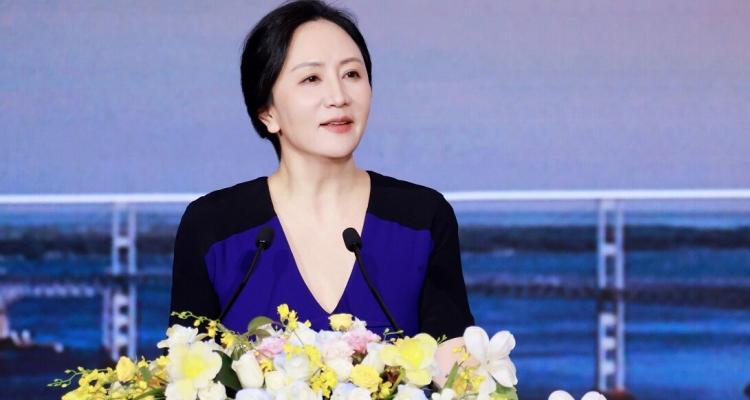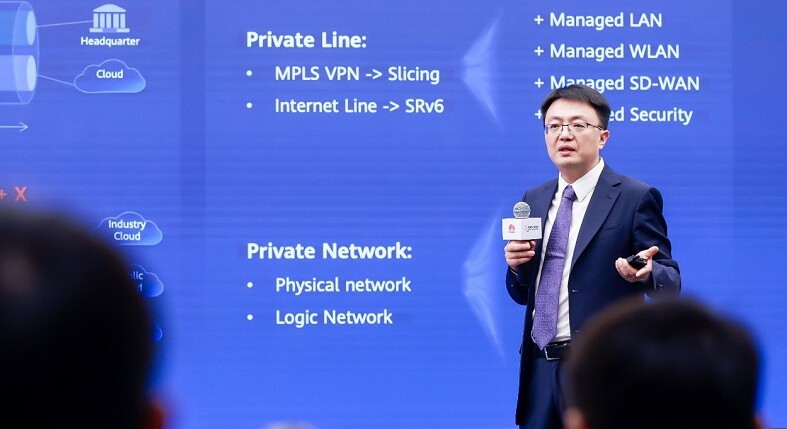
Huawei says enterprises that are going digital and enterprises that are helping others go digital will have huge addressable markets and huge economic benefits with spending on global digital transformation expected to reach US$3.4 trillion by 2026.
Meng Wanzhou, Huawei Vice Chairwoman, Rotating Chairwoman, and CFO, was speaking during the 20th Huawei Global Analyst Summit which was held from April 19 to 20.
Ms Meng said Huawei is a partner in digital transformation as the company is enabling productivity and efficiency improvements across industries such as mining, healthcare, ports, transportation and many others. The company has built in-depth partnerships with nearly 200 power enterprises worldwide and provided digital services for more than 20 leading oil and gas enterprises and 800 mining enterprises
Huawei is also building the digital infrastructure that will support these increasingly diverse and complex industrial scenarios. These networks require ultra-reliable and fast connections between people and intelligent objects, and between home and factories.
In addition, Huawei is leading the development of the next generation 5.5G infrastructure, developing the technology and networks that will support over 100 billion connections and deliver a 10-gigabit user experience.
Ms. Meng further said that Huawei and its partners have developed and released over 100 digital transformation standards for the smart city, finance, electric power, highway, aviation, and healthcare industries. By the end of 2022, over 700 cities and 267 Fortune Global 500 companies worldwide had chosen Huawei as their partner for digital transformation.
In terms of industry, Huawei has served more than 2,800 medical institutions and 50 of the top 100 financial institutions. In addition, Huawei’s solutions serve more than 100 airports and 100 ports, and have helped customers upgrade more than 200,000 km of roads, 300 urban rail tracks, and 150,000 km of railway tracks
Ms. Meng outlined the four distinct characteristics of digital infrastructure that Huawei is delivering to help customers go digital.
“We aim to provide our customers with digital infrastructure that has the simplest possible architecture and the highest possible quality, delivering the best possible experience at the lowest possible costs.
“Our goal is to help organizations go digital in four stages: digitizing operations, building digital platforms, enabling platform-based intelligence, and putting intelligence to use. The time is ripe to thrive together in this new and exciting digital future,” she said.
In his keynote address, Dr. Zhou Hong, President of the Institute of Strategic Research talked about artificial intelligence (AI), saying there is need to consider how to make sure the development of AI is what people want and ensure AI execution is accurate and efficient. He also pointed out the need to create rules and laws to enhance AI ethics and governance.
“If we don’t have an agreed-upon definition, it’s almost impossible to ensure that the goals of AI and human beings will be aligned. It also makes it difficult to make reasonable classifications and computations,” Dr Zhou explained.
A session themed “Stride to Net5.5G, Boost New Growth” was held during the summit to share technology trends and future use cases with industry partners and customers.
Qiu Yuefeng, Vice President of Huawei’s Data Communication Product Line, said that, as digitalization gathers pace, 10 Gbps access will soon be available to every person, every family, and every organization.

He added that Net5.5G provides end-to-end technological innovations to better adapt to different service scenarios. He said Huawei will continue to work with global industry partners to explore the development direction of Net5.5G and promote the vigorous development of Net5.5G.
Huawei also held the Striding Towards the Intelligent World Session at the Global Analyst Summit 2023.
Peng Song, Huawei’s President of ICT Strategy & Marketing, delivered the keynote speech titled Striding Towards the Intelligent World Through Continuous Innovation.
In his speech, Peng pointed out that the digital economy is becoming a main driver of global economic growth, and that digital technologies are being applied in diverse production scenarios across a wide range of industries. This makes data a new factor of production, and is driving significant leaps in social productivity.
Peng said that as digital infrastructure is critical for the success of the digital economy, Huawei is committed to collaboratively developing transmission, computing, and storage power to improve the efficiency of data collection, transmission, computing, storage, and analysis, in order to improve digital productivity and boost the digital economy.
“Moving forward, we will continue innovating to help customers build leading digital infrastructure, accelerating our journey towards the intelligent world,” said Peng.
At the session, other industry experts also shared their experience in this area.
Wang Zhiqin, Vice President of the China Academy of Information and Communications Technology (CAICT), said the digital economy is entering a phase of quality growth driven by data.
“High-quality ICT development will propel healthy and prosperous development of the digital economy,” she said.
Sun Zhengyun, Vice President and Secretary-General of the China Energy Research Society, talked about how power grid enterprises can go digital to support China’s carbon peak and carbon neutrality strategy. He pointed out that by integrating digital technologies and traditional power technologies, power grid enterprises can build a middle platform architecture, unlock the value of data, and create intelligent services, which will drive high-quality development of themselves and the economy at large.
The 2020 Huawei Global Analyst Summit attracted analysts, experts, scholars, and journalists from around the world.
Follow us on Twitter:














